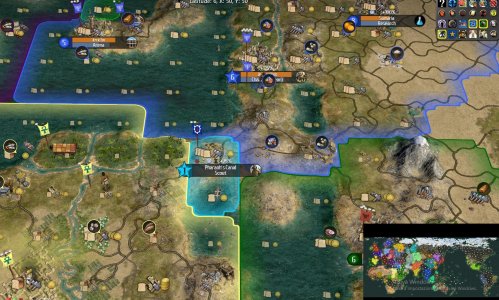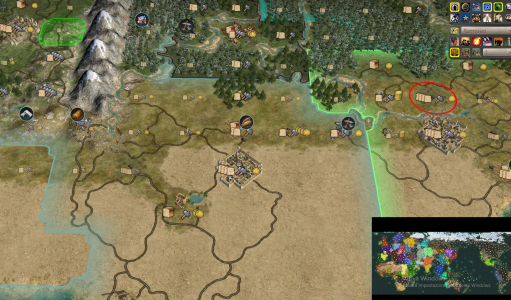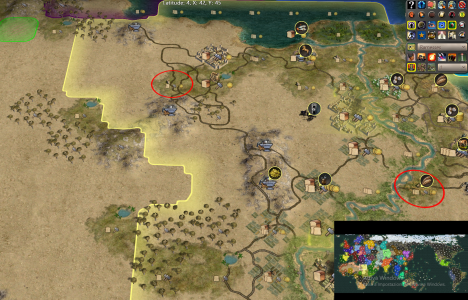I missed this post before, and I'm not going to discuss the more specific points from it, but overall, the developments you describe is more or less exactly what happened in Western Europe anyway under Charlemagne, which is exactly my point - it wouldn't have made a major difference in the long run. There would be minor discrepancies, sure, but nothing would go materially different. And yes, I totally agree with the point that Justinian's ambitions didn't exactly correspond to the means the empire had at the time - but that again circles back to the point that from the contemporary perspective, there was no "fall of Rome", he thought of himself as another Aurelian fixing a temporary crisis, so there was no reason for him to behave as modestly as you described.
I'm curious about Justinian's ambitions...like did his generals tell him that it wouldn't be a good idea to conquer Italy? Or did everyone overestimate how easy it would be? It reminds me how Putin thought it would take 3 days to take Kiev and yet look where we are now.
There was certainly a tone shift in how the Romans viewed Theodoric. Initially, contemporaries didn't think Rome fell when Odoacer overthrew Romulus Augustus and Romans later invited Theodoric to replace him (they fought a war to do so, but still) and viewed him as continuing Roman rule in Italy. During the course of Theodoric's reign did the opinion that Rome fell with Romulus Augustus start to take hold. Not sure about the exact court politics in Constantinople in how that view became dominant, very least Justinian had that view. I think you could find Roman elite who still viewed Italy as Roman, it's just their opinion didn't matter to Justinian. It's not that opinions/perspectives are set in stone. Justinian could have been persuaded to keep the traditional view that Italy was still "Roman" in a sense. Just take Sicely and Corsica and Sardina from Theodoric and call it day. The very least, we (hehe), I mean Romans could have avoided the disastrous Roman-Gothic war. History is a like a river, just a different perspective could have changed it. No doubt that Justian viewed himself as an Aurelian, but I think that was the wrong view and he should have kept the initial view that Italy was still Roman (a more nuanced universal view of what it meant to be Roman)
---------------------------------------------------------------------------------------------------------------------------------------------------------------------------------------------------------------------------------------------------------------------------------------------------------------------------------------------------------------------------------------------------------------------------------------------------------------------
And for the life of me I can't find the previous discussion on how colonies should be treated

but from what I remember that even faraway cities on the same landmass wouldn't be considered a colony and cultural continuity was deemed to difficult as a remedy?
Potential solution, what if it was just by movement points from one city to the next? Two checks, one by land movement and one by water movement points; it takes both (if applicable) to meet colony threshold. So, a coastal city that may be considered a colony based on land movement points but is not considered one by water movement points will be considered not a colony. The number of movement points considered to be a colony would increase as the eras advanced? Normal city settling should generally not cause your cities to be colonies but if you do faraway cities (like the classic taking a good chokepoint) then likely it'll be considered a colony. Hopefully, this may be more doable of a solution?
As an aside, I find it a great idea how this was specifically a game setting in Troy: Total War. How fantasy do you want your interpretation of the events to be? Was a "minotaur" an actual giant monster with a bull's head? An epic hero using a bull's skull as a helmet decoration, able to go alone against formations of lesser opponents Homer-style? Or simply a bigger-than-average warlord from Crete using culturally significant bull symbolism and leading a unit of Cretans? One could play the game as anything between ancient Greek-themed Warhammer Fantasy Battles and a relatively accurate Bronze Age warfare simulator.
Total war is doing an amazing job to keep the wide breath of their fans happy. Firaxis seems to be struggling-they should have a Civ Realism lnvictus series

I see zero evidence of that. If anything, the Western style of warfare was dead since the advent of tanks and aviation, turning all major militaries into "cavalry-based" Eastern-style forces, and post-WW2 developments (man-portable missiles being the chief one) are trying to bring it back. So far, mass drone warfare in Ukraine has shown the exact opposite - a regression to Western-style warfare, which, in the modern era, was epitomised by WW1. WW1 was essentially Hellenic-style warfare on a different scale; Verdun would be strategically very familiar to Hellenic generals, if on a much grander scale, obviously - whose "formation" would break first? Who would run out of fresh infantry first?
Hmmm, I think it depends on how you view Western style of warfare? I see symmetrical vs asymmetrical as the broad defining line, less than static vs mobility. Western style is more about having openly declared wars, soldiers in uniform, professional and disciplined, and fighting for clear military objectives to ensure a quick military victory as according to Matthew White's The Great Big Book of Horrible Things (which I have read probably a half a dozen times, is that a good thing?). What I foresee with drones, is that drones are a lot less dependent on having standing militaries, no need for soldiers when you can have ordinary civilian. Also, it'll be increasingly hard to determine whose drones attacked who. A drone swarm out of Iraq striking Turkey doesn't mean the Iraqi government did it, it could have been the Kurds. Drone strikes allow the use of sudden attacks, undeclared wars, more room for ambiguity.
A Mongolian horse archer (a typical nomad taking care of horse) has a lot more in common with a gamer turned drone operator than he does with a knight. A knight would be more akin to a tank crew-professional, high level of training. Mongolian horse archer and gamer drone operator is more like the war is an extension of their skills, not professionally trained in the sense of a knight or a tank crew.
In this sense, this is what I mean with the Western way of war is ending. WWI would be the prime example of the Western way of war. And certainly no doubt that post WWII that it was under attack given all the guerilla wars, like the man pads you mentioned, but I think that drones are going to accelerate this trend beyond what nations may be able to cope. Any seperatist/terrorist group getting supplied with drones can now wage asymmetrical warfare on a scale not previously seen. The age of industrialized asymmetrical warfare is here. Consider this, symmetrical warfare was industrialized during the 1800s and look at the horrors of WWI and WWII it brought. Are we ready what horrors industrialized asymmetrical warfare would bring? Everyone's infrastructure was not built with this in mind.
-Best current example is the Houthis and we just entered the age of the drones and the Houthis I have heard been described as one of the most incompetent terrorist group ever-yet look at how they can shut down maritime traffic. 5,10, 20 years from now?

-Sudan War also a good example where frontlines don't matter as much anymore, both sides are lobbying drones at each other's infrastructure


 %, the slavery boosting mine and the others boosting craftmans, but I did managed.
%, the slavery boosting mine and the others boosting craftmans, but I did managed. 
 (that I had to learn to differenciate between +
(that I had to learn to differenciate between + ...), but wait ! The
...), but wait ! The 
 But more seriously, I don't really super optimize things, except let's say the first 100 turns, I just take the one that feels like it makes sense, even if it's not really the best choice at the moment. There's a lot going on in the mid/late game on larger maps so some compromises must be made to finish the game in a reasonable time (I usually have motivation for 2 weeks of continuous play, more than that becomes a bit tiring).
But more seriously, I don't really super optimize things, except let's say the first 100 turns, I just take the one that feels like it makes sense, even if it's not really the best choice at the moment. There's a lot going on in the mid/late game on larger maps so some compromises must be made to finish the game in a reasonable time (I usually have motivation for 2 weeks of continuous play, more than that becomes a bit tiring).



 . Walter, will you also update the foot knights to look like this? And do you have plans for the Roman knights?
. Walter, will you also update the foot knights to look like this? And do you have plans for the Roman knights? 
 I am glad to carry the same opinion about the new French cataphract model and the Cuirassiers! The first looks amazing with that cloak and the later has an surprisingly high quality model. The old cataphract model wasn't any bad, just a bit too bareboness so to speak, this one has so many details I could stare at it for quite a long time!
I am glad to carry the same opinion about the new French cataphract model and the Cuirassiers! The first looks amazing with that cloak and the later has an surprisingly high quality model. The old cataphract model wasn't any bad, just a bit too bareboness so to speak, this one has so many details I could stare at it for quite a long time! )
) mindblowing, I'll be flanking all day and night with these.
mindblowing, I'll be flanking all day and night with these.